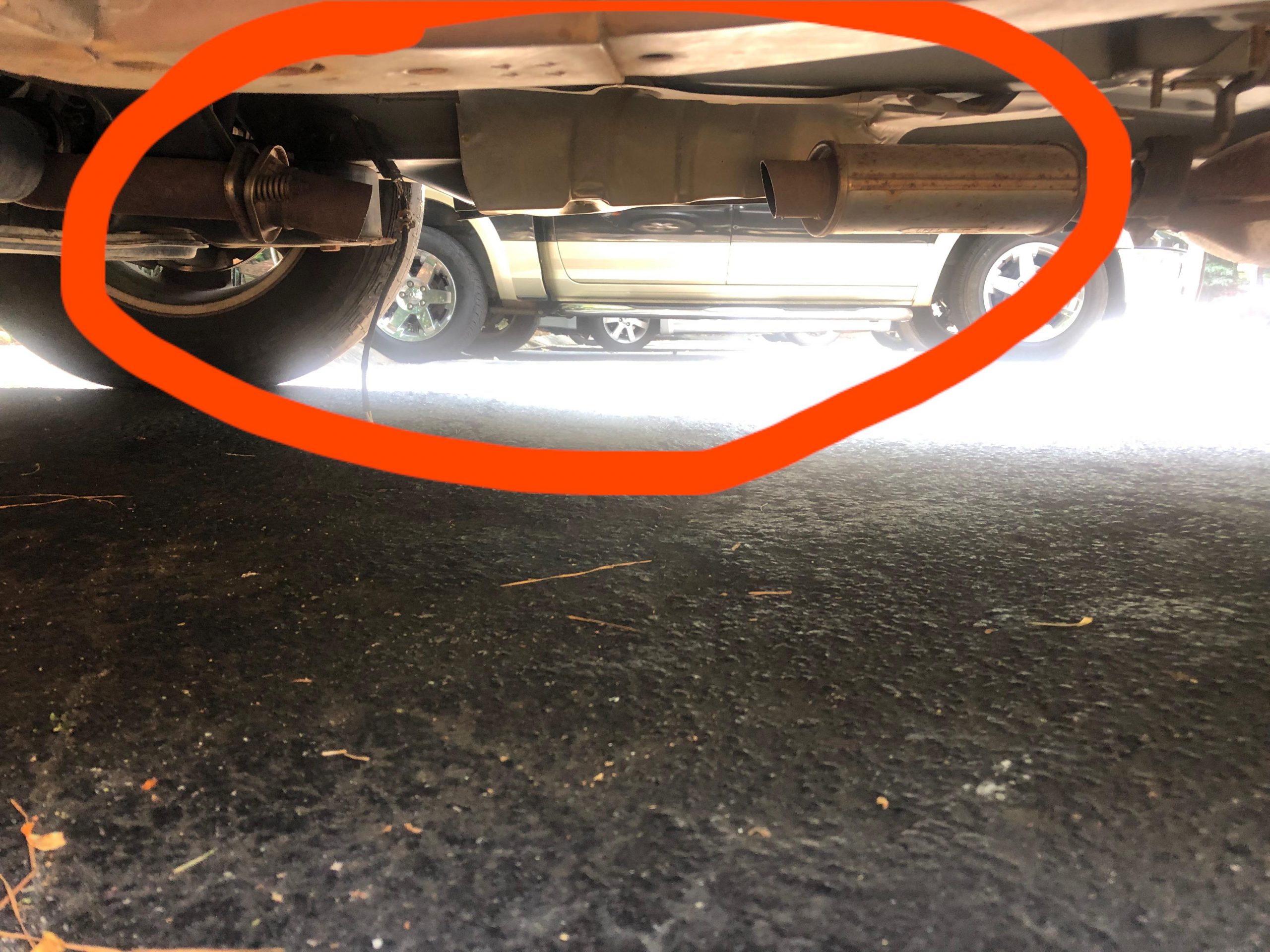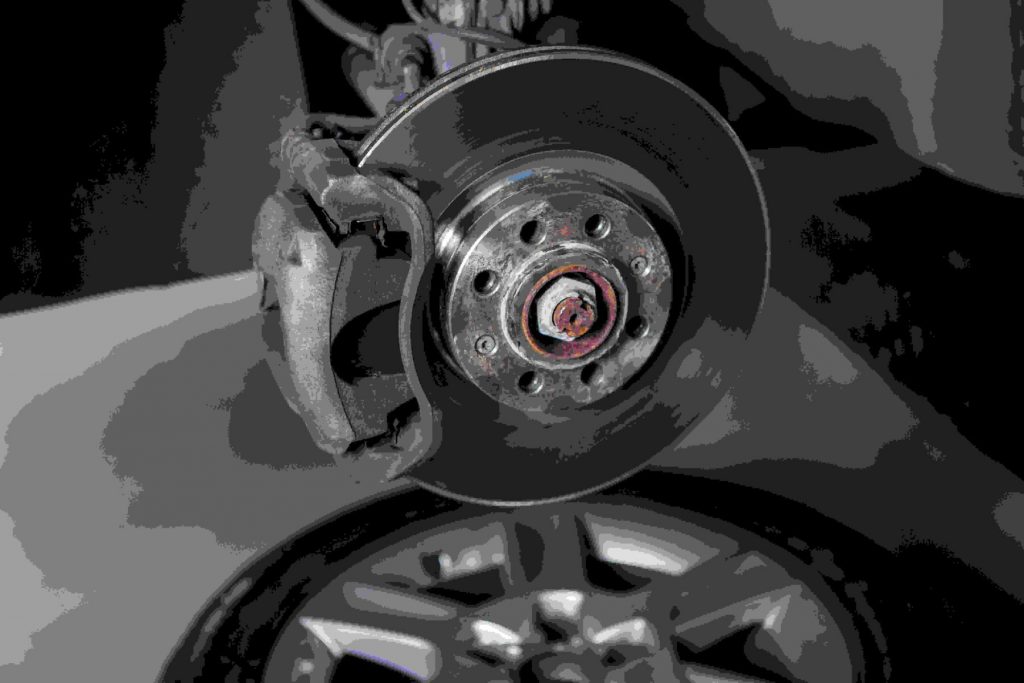Driving with a missing catalytic converter is a situation some Sharjah drivers encounter, whether due to theft, mechanical issues, or misguided attempts to boost performance. As Burj Malabar Auto Maintenance, we often get asked if it’s safe or advisable to drive without this critical component. In this article, we explore the mechanical effects and safety implications of running a vehicle without a catalytic converter. We’ll start with what a catalytic converter does and why vehicles rely on it. Then we’ll discuss how removing this part affects your car’s performance and engine health. Finally, we’ll examine the safety risks and legal consequences in the UAE of driving without a catalytic converter.
Why Your Car Needs a Catalytic Converter
A catalytic converter is an essential part of your car’s exhaust system that reduces harmful emissions. It uses metal catalysts to convert toxic exhaust gases into less dangerous substances. For example, the converter turns poisonous carbon monoxide and hydrocarbons into carbon dioxide and water, significantly cutting pollution and preventing smog from nitrogen oxides. Your car “breathes out” much cleaner emissions thanks to this device.
Reducing these toxic fumes is also crucial for public health. Without a converter, a vehicle releases far more poisonous gases. Carbon monoxide (CO) is odorless and deadly, NOx irritates lungs, and some exhaust hydrocarbons are carcinogenic. Cutting down these emissions protects the health of people in your community.
Equally important, your car needs a catalytic converter to comply with the law. In Sharjah and across the UAE, vehicles must pass an annual emissions test to renew registration. If your catalytic converter is missing or not working, your car will likely fail this test. Driving without a catalytic converter is illegal – authorities can levy heavy fines or impound your vehicle until a proper converter is installed. Federal law explicitly forbids tampering with emission control devices, so removing the cat can lead to serious penalties. Simply put, keeping a functional catalytic converter is not just good for the environment – it’s required for your car to be street-legal in Sharjah.
Mechanical Effects of Driving Without a Catalytic Converter
Some drivers believe that removing the catalytic converter might improve engine performance by reducing exhaust backpressure. While exhaust flow may be slightly less restricted, modern engines are tuned to operate with the converter in place. Any small horsepower gain is negligible and outweighed by new problems. We have found that any perceived boost without a catalytic converter is not worth the trade-offs in drivability and reliability.
Without a catalytic converter, your car’s engine management system can get confused. The engine control unit (ECU) relies on oxygen sensors before and after the converter to monitor exhaust gases. Removing the converter disrupts these readings, often causing the ECU to run the engine “rich” (too much fuel) and triggering the Check Engine light. The result can be reduced power, sluggish acceleration, and other performance issues – the opposite of what you’d want by taking out the cat.
Driving without a catalytic converter also harms your vehicle’s fuel efficiency and components. Key mechanical consequences include:
- Decreased Fuel Economy: The engine runs less efficiently without a converter, so fuel consumption increases. You’ll burn more fuel per kilometer, which means higher costs.
- Risk of Engine Damage: Unburned fuel can enter the exhaust when the converter is gone, potentially overheating and damaging exhaust valves or other parts. Over time, spark plugs and oxygen sensors may foul more quickly because the exhaust is dirtier and the engine isn’t tuned properly.
- Louder Exhaust Noise: The catalytic converter helps muffle exhaust sound. Without it, your car’s exhaust note will be louder and raspier. This excessive noise can indicate poor exhaust flow – and it may also violate UAE noise regulations.
In short, modern cars are not designed to run without catalytic converters. Any minor drop in restriction is undermined by the engine’s computer trying to compensate, leading to worse overall performance. Removing the catalytic converter will likely make your car less reliable and more expensive to maintain in the long run.
Safety Concerns and Legal Implications
Safety is a major concern when driving without a catalytic converter – for both you and others. The exhaust from your tailpipe becomes much more toxic without this filter. With a functional converter, much of the poisonous carbon monoxide is turned into CO₂, but without one, that CO is released into the air. Breathing these fumes is far more dangerous. High levels of CO can be lethal, and extra hydrocarbons and NOx in the air can trigger headaches or respiratory problems. In a busy area like Sharjah, one vehicle without emissions control puts nearby people at risk of health issues.
The legal implications are also severe. UAE regulations strictly forbid modifications that increase emissions or noise, and the catalytic converter is a key emissions control device. If you’re caught driving without one, you could face heavy fines, license black points, or even have your vehicle seized. Sharjah authorities enforce these rules stringently. Moreover, your car will not pass the yearly inspection – RTA testing centers will fail any vehicle with excessive emissions or a missing catalytic converter, meaning you cannot renew your registration until it’s fixed. In summary, driving without a catalytic converter in the UAE is illegal and unsafe. These laws exist to protect health and the environment, so breaking them carries serious consequences.
The table below compares driving with versus without a catalytic converter:
| Aspect | With Catalytic Converter | Without Catalytic Converter |
|---|---|---|
| Emissions & Air Quality | Meets emission standards; converter cleans toxic gases (CO, NOx, HC) into safer byproducts. | Emits toxic gases (CO, HC, NOx) directly into the air, causing severe pollution and health hazards. |
| Engine Performance | Engine performs normally with proper backpressure and sensor readings; smooth power delivery. | Abnormal O₂ sensor readings disrupt engine tuning; engine may run rough or lose power despite slightly freer flow. |
| Fuel Efficiency | Fuel consumption is as intended by the manufacturer (optimal mileage). | Runs rich and wastes fuel, so mileage drops. |
| Engine Wear & Tear | Normal wear; no undue stress on engine or exhaust components. | Unburned fuel and heat can damage engine/exhaust (e.g. burnt valves, fouled sensors); more frequent repairs likely. |
| Noise Level | Quiet exhaust note within legal noise limits. | Louder, harsher exhaust note; can exceed noise limits and draw police attention. |
| Legal Compliance | Fully compliant with UAE laws; passes emissions tests and inspections. | Illegal in UAE; fails emissions test, cannot be registered, and leads to fines or impoundment. |
The Bottom Line: Keep It Clean, Keep It Legal
Driving without a catalytic converter is neither safe nor smart – especially in Sharjah, where environmental laws are strict. The catalytic converter exists for good reasons: it keeps your engine efficient, prevents damage, and protects everyone’s health by cutting toxic emissions. Removing it might seem like a shortcut to save money or gain performance, but the consequences far outweigh any benefit. You risk damaging your car, endangering yourself and others with poisonous fumes, and breaking the law in the process.
As a responsible auto service, we strongly advise keeping your catalytic converter intact and functional. If it’s damaged or clogged, the safe choice is to get it repaired or replaced – not to drive without it. At Burj Malabar Auto Maintenance, we are committed to keeping Sharjah’s roads safe and our customers’ vehicles running clean. Our experts can help with any exhaust or emissions issues your car might have. Remember, staying compliant with emission standards isn’t just about avoiding fines; it’s about ensuring a safer drive and a healthier environment for everyone. Drive safe, and let us help you maintain your vehicle the right way.



